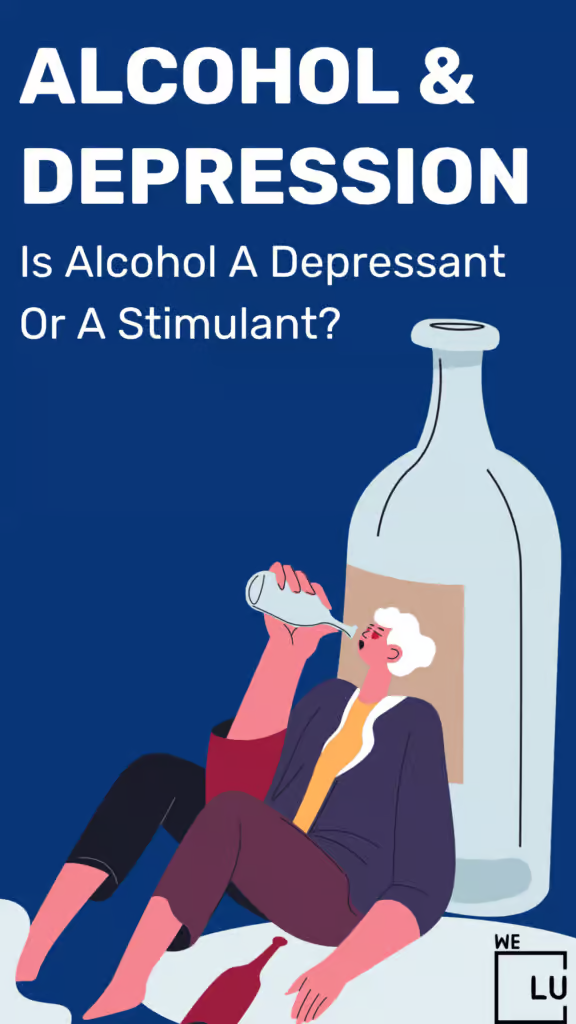What Is Alcohol Intolerance?
Alcohol intolerance is characterized by immediate unpleasant reactions after drinking alcohol. The most common signs and symptoms of alcohol intolerance are stuffy noses and skin flushing. The only way to prevent alcohol intolerance reactions is to avoid alcohol misuse. Alcohol intolerance isn’t an allergy. However, in some cases, what seems to be alcohol intolerance may be a reaction to something in an alcoholic beverage, such as chemicals, grains, or preservatives. Mixing prescription drugs and alcohol also can cause reactions. In rare instances, an unpleasant reaction to alcohol can be a sign of a serious underlying health problem that requires diagnosis and treatment.
How Common Is Alcohol Intolerance?
Alcohol intolerance is caused by a genetic condition in which the body is unable to break down alcohol efficiently. It is most common in Asians. These individuals accumulate acetaldehyde, the primary metabolite of ethanol, because of a genetic polymorphism that doesn’t allow aldehyde dehydrogenase (ALDH) to metabolize acetaldehyde to non-toxic acetate. [1]
Signs Of Alcohol Intolerance
Making a diagnosis for a genetic or rare disease such as alcohol intolerance can often be challenging. Healthcare professionals typically look at a person’s medical history, symptoms, physical exam, and laboratory test results in order to make a diagnosis. The following resources provide information relating to diagnosis and testing for this condition. If you have questions about getting a diagnosis, you should contact a healthcare professional.

Alcohol Intolerance Symptoms
If you have alcohol intolerance and consume an alcoholic beverage, the most immediate symptom you might notice is your skin going flush and feeling warm.
Other symptoms of this condition [2] include:
- A stuffy nose
- Your face, neck, and chest turn pink or red
- Diarrhea
- Rapid heartbeat
- Fatigue
- Headache
- Low blood pressure
- Worsening asthma
- Alcohol intolerance rashes
For most people with this condition, symptoms will vary from one person to another. However, the most common symptoms to look out for are your skin flushing and feeling sick whenever you consume alcohol.
What Causes Alcohol Intolerance?
Major Causes Of Alcohol Intolerance Are…
- Autosomal dominant inheritance – Autosomal dominance is a pattern of inheritance characteristic of some genetic diseases. “Autosomal” means that the gene in question is located on one of the numbered, or non-sex, chromosomes. “Dominant” means that a single copy of the disease-associated mutation is enough to cause the disease. This is in contrast to a recessive disorder, where two copies of the mutation are needed to cause the disease.
- Reduced acetaldehyde dehydrogenase level or (ADH) – ADH and alcohol dehydrogenase (ALDH) are the primary enzymes involved in alcohol metabolism.
What Happens When You Drink Alcohol?
This is what happens when you consume an alcoholic beverage:
- When you drink alcohol, your body uses an enzyme called alcohol dehydrogenase (ADH) to break down the alcohol.
- Your liver then converts it to acetaldehyde which can be damaging for your body. This is where ALDH2 comes in.
- ALDH2 works by turning acetaldehyde into acetic acid, otherwise known as vinegar, which is safe for your body.
- When the ALDH2 enzyme is inactive or less active, your body doesn’t do a proper job at making this final conversion, resulting in the symptoms you experience if you have alcohol intolerance.
Even in people who don’t have alcohol intolerance, a build of acetaldehyde in your body is what causes you to feel sick when you’ve had too much alcohol. It can be difficult to diagnose conditions that are genetically inherited. In trying to make a diagnosis, your doctor or healthcare provider will look into your medical history and conduct a physical exam. Your doctor might also conduct lab tests. [3]

Alcohol Intolerance With Age
Alcohol sensitivity can develop with age. Older adults tend to get drunk quicker than younger adults because their alcohol tolerance decreases. As you age, your ability to metabolize alcohol declines. After drinking the same amount of alcohol, older people have higher blood alcohol concentrations than younger people because of such changes as a lower volume of total body water and slower rates of elimination of alcohol from the body.
Developing Alcohol Intolerance
Alcohol intolerance occurs when your body doesn’t have the proper enzymes to break down (metabolize) the toxins in alcohol. This is caused by inherited (genetic) traits most often found in Asians. Other ingredients commonly found in alcoholic beverages, especially in beer or wine, can cause intolerance reactions. These include:
- Sulfites or other preservatives
- Chemicals, grains or other ingredients
- Histamine, a byproduct of fermentation or brewing
Risk factors for alcohol intolerance or other reactions to alcoholic beverages include:
- Being of Asian descent
- Having asthma or hay fever (allergic rhinitis)
- Having an allergy to grains or to another food
- Having Hodgkin’s lymphoma – Hodgkin’s lymphoma — formerly known as Hodgkin’s disease — is a cancer of the lymphatic system, which is part of your immune system. It may affect people of any age, but is most common in people between 20 and 40 years old and those over 55.
Alcohol Allergy Vs. Intolerance
If you have an alcohol allergy, your immune system over-reacts to alcohol. If you have alcohol intolerance, your digestive system doesn’t process alcohol properly. You might also react to certain alcoholic beverages if you have histamine or sulfites intolerance. In very rare cases, reactions to alcohol may be a sign of Hodgkin’s lymphoma.
Symptoms of alcohol intolerance that people may confuse with alcohol allergies could include:
- Low blood pressure
- A fluttering sensation of the heart
- High blood pressure
- Swelling of the lips or tongue
- Coughing
- Fainting or chest pain
While an allergy to alcohol is rare, an allergy or intolerance to ingredients used to make wine, beer, or distilled spirits can. These include grains like wheat, barley, and rye used to make beer, which can affect people with celiac disease, non-celiac gluten sensitivity, and wheat allergies. Red wine contains high levels of histamine and may cause headaches, congestion, and itching in people with histamine intolerance.
People with sulfite allergies will likely need to avoid red wine. Similarly, those with a mold or yeast allergy may need to steer clear of fermented beverages made with brewer’s yeast, including beer and wine. While rare, people with grape allergies should avoid wine and grape-based liquors, including brandy. Even less common is an allergy or intolerance to corn-based liquors like bourbon. [4]
If you have any type of food allergy, it is important to be careful about the alcoholic beverages you drink. It helps to read the product label, although many ingredients used in the fermentation or distillation process may not be included.
Alcohol Addiction Treatment
Alcohol intolerance is a metabolic disorder that has no cure. While its symptoms can be inconvenient and uncomfortable, they are typically not fatal. The condition is also genetically inherited, which means there’s nothing you can do to prevent it.
The best way to avoid the complications of alcohol intolerance is to cut out alcohol completely.
Alcohol Addiction is a life-threatening condition that can lead to a constant health crisis and may even be fatal. Thus, immediate professional help is the only way to avoid harm to yourself or a loved one. Comfortable alcohol detox is attainable if you seek professional help rather than detox by yourself and face harmful withdrawal symptoms. Withdrawal from alcohol is an important first step to overcoming your alcohol-related problems. However, withdrawal isn’t an effective treatment by itself. You’ll need further treatment and support to help you in the long term. [5]
Alcohol has no preference for age, gender, or financial status because addiction may strike anybody at any time. Moreover, addiction really has no known motive. However, there are predictors. Those who have a family history of addiction are at a higher risk of developing an addiction for instance. Again, it is an illness like any other and needs treatment as early as it is detected.
Alcohol detox can be dangerous, mainly if it is done without the help of a professional. Delirium tremens and other withdrawal symptoms that may afflict the detoxing patient are hazardous and may even be fatal. Delirium tremens usually start two to five days after the last drink. Shaking, confusion, high blood pressure, fever, and hallucinations are some symptoms.
It is advisable to detox in a rehab center to access qualified professionals who can manage comfortable alcohol detox and withdrawal complexities. The medically managed detox processes allow the body to process the alcohol in the system. And, it gently unaccustomed the body to its dependence on substances such as alcohol. Basically, it is the first stage of alcohol treatment and one you should seek before your addiction gets more damaging.

Alcohol addiction treatment is within your reach to ensure your recovery starts on a comfortable and safe step. Contact We Level Up TX for further details of getting addiction treatment and for any concerns about alcohol intolerance.
Sources:
[1] Acute Alcohol Sensitivity – https://rarediseases.info.nih.gov/diseases/12634/acute-alcohol-sensitivity
[2-3] What Is Alcohol Intolerance? – https://www.verywellmind.com/alcohol-intolerance-definition-symptoms-causes-treatment-5207939
[4] Alcohol Allergies and Intolerance – https://www.verywellhealth.com/alcohol-allergies-and-intolerances-1324211
[5] Alcohol Misuse – National Health Service UK





